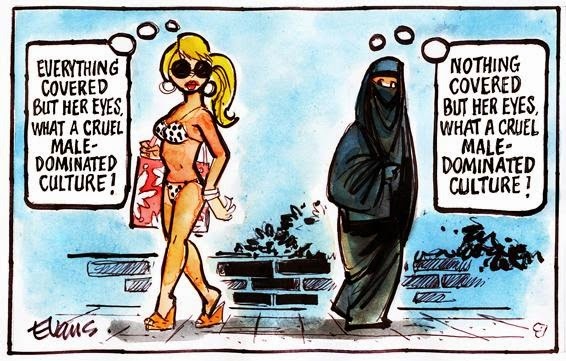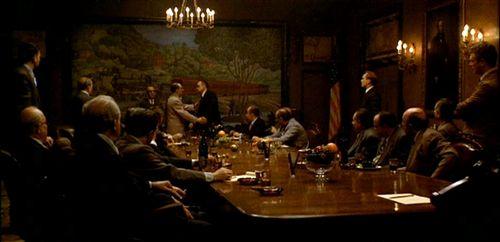Ethnicity, in its most simple definition, refers to cultural differences between social groups. But what sort of conflicts arise from these differences, and how are they represented in the media?

An example of ethnocentrism
Ethnocentrism explores the belief that an individual’s ethnic group is superior to all others. In the practice of being ‘ethnocentric’, we judge someone else’s culture by the values and standards that we hold in our own. If we see someone doing something that we aren’t used to, or doing something in a way that is different to our own method, we automatically think it to be weird or consider them to be ‘different’ and even inferior to us. Consider the classic “driving on the wrong side” debate between the UK and the US. Americans visiting the UK often comment on the fact that motorists in the drive on the left side of the road, rather than the right, as is done in their country (and vice versa). The issue of ethnocentrism arises here because both countries think that their way of driving is more ‘correct’ or superior – which is not the case.
We constantly see examples of ethnocentrism in the media, though we might be less aware of it as these references tend to be rather subtle, and are often hidden behind humour. One notable example where we see ethnocentrism in the media is in the 2002 movie My Big Fat Greek Wedding. Here, in the opening scenes we see the movie’s main character, Toula Portokalos, constantly questioning her Greek heritage, while her parents offer responses that ultimately reinforce the importance of Greek culture. In one particular scene, Toula notes what she describes as two things in which her father believes: “that Greeks should educate non-Greeks about being Greek” and that any ailment can be cured with Windex (a popular American branded hard-surface cleaner).
Despite the light-hearted intention of this joke (this is made clear by the Windex reference) we still see the concept of ethnocentrism here because making the assumption that non-Greeks need to be educated by Greeks reinforces the opinion or belief that Greeks are superior to non-Greeks. This likely isn’t the intended interpretation of this scene, yet it still comes across.

My Big Fat Greek Wedding (2002) Movie
In looking at ethnocentrism, we can also consider issues of racism. Holding ethnocentric ideals and views can give way to racist and supremacist views, as one’s belief in the superiority of their own culture might lead them to look for other reasons to denigrate a culture which they believe is inferior. One of the ways in which they might do this is to discriminate or be prejudiced against people based on their race. This is particularly an issue in the media, as this can lead to the creation and perpetuation of negative stereotypes about certain groups in society. We can analyse one movie in particular in order to better understand this.
In the 1972 movie The Godfather, one scene portrays the mafia sitting down for a meeting to discuss the death of a family member. In the scene, when a discussion about drug trading arises ‘Don Zaluci’, the head of the mafia’s Detroit branch, says that if it were up to him, he would keep the drug traffic ‘in the dark people – the coloured’ because ‘they are animals anyway’ so they can ‘lose their souls’.

Meeting scene in The Godfather (1972)
In a movie that celebrates the Italian-American culture so strongly, it is not shocking to see such an example of racism as a consequence of ethnocentrism. While the views shown here might have been appropriate for the time period in which the movie was set, it is clear that today, that isn’t the case and such a movie might only promote such negative stereotypes of black people.
We see ethnocentrism all over the media, though we may not often realise it. In some cases it might be more overt than others i.e. in The Godfather, or at times more subdued and comedic i.e. in My Big Fat Greek Wedding. Though it might be difficult at times to be aware of ethnocentrism in the media, it is important to understand the negative effects it can have in society, in terms of perpetuating issues of race.
